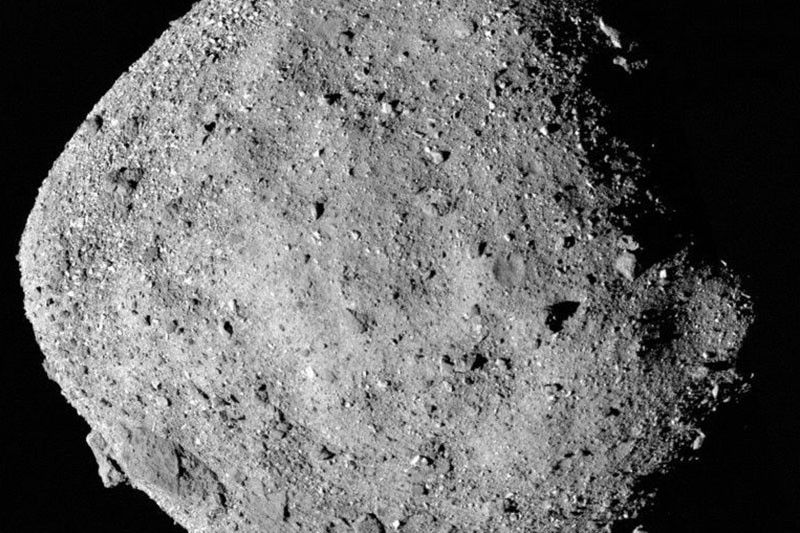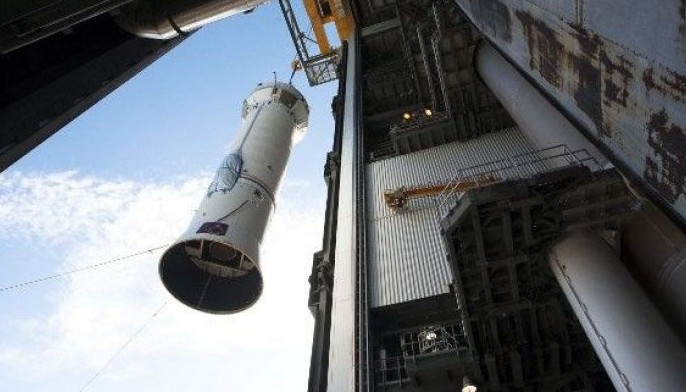US probe to touch down on asteroid Bennu on October 20

WASHINGTON, United States — After a four-year journey, NASA's robotic spacecraft OSIRIS-REx will descend to asteroid Bennu's boulder-strewn surface on October 20, touching down for a few seconds to collect rock and dust samples, the agency said Thursday.
Scientists hope the mission will help deepen our understanding of how planets formed and life began and provide insight on asteroids that could impact Earth.
"Years of planning and hard work by this team are essentially coming down to putting the TAGSAM (Touch-And-Go Sample Acquisition Mechanism) into contact with the surface for just five to 10 seconds," said Mike Moreau, OSIRIS-REx deputy project manager.
NASA has chosen a site called Nightingale, a rocky area 52 feet (16 meters) in diameter, for the spacecraft's robotic arm to attempt to collect a sample, because it holds the greatest amount of unobstructed fine-grained material.
The spacecraft, about the size of a large van, will need to touch down in an area about the size of a few parking spots, taking care to avoid surrounding boulders.
Because the spacecraft and Bennu will be approximately 207 million miles (334 million kilometers) from Earth, it will take about 18.5 minutes for signals to travel between them.
This prevents the live commanding of flight activities, so the spacecraft will need to perform the sequence autonomously.
OSIRIS-REx is supposed to collect at least 2 ounces (57 grams) of Bennu's rocky material to bring back to Earth–- the largest sample return from space since the Apollo program.
It will deliver its payload to Earth on September 24, 2023.
Monitor major developments on space explorations and the status of missions.
NASA reveals a sample collected from the 4.5-billion-year-old asteroid Bennu contains abundant water and carbon, offering more evidence for the theory that life on Earth was seeded from outer space.
The discovery follows a seven-year-round-trip to the distant rock as part of the OSIRIS-REx mission, which dropped off its precious payload in the Utah desert last month for painstaking scientific analysis.
"This is the biggest carbon-rich asteroid sample ever returned to Earth," NASA administrator Bill Nelson says at a press event at the Johnson Space Center in Houston, where the first images of black dust and pebbles were revealed. — AFP
NASA is set to reveal on Wednesday the first images of the largest asteroid sample ever collected in space, something scientists hope will yield clues about the earliest days of our solar system and perhaps the origins of life itself.
The OSIRIS-REx mission collected rock and dust from the asteroid Bennu in 2020, and a capsule containing the precious cargo successfully returned to Earth a little over two weeks ago, landing in the Utah desert.
It is now being painstakingly analyzed in a specialized clean room at NASA's Johnson Space Center in Houston. — AFP
A Spanish company launches the country's first private rocket on Saturday in a step towards bringing Spain into the exclusive club of space-faring nations.
The launch of the small MIURA1 rocket took place at 02:19 am (0019 GMT) from a military base in the southern region of Andalusia, according to the company, PLD Space.
The company hailed the launch as "successful" and said it had achieved all its "technical objectives". — AFP
India's Sun-monitoring spacecraft has crossed a landmark point on its journey to escape "the sphere of Earth's influence", its space agency says, days after the disappointment of its Moon rover failing to awaken.
The Aditya-L1 mission, which started its four-month journey towards the centre of the solar system on September 2, carries instruments to observe the Sun's outermost layers.
"The spacecraft has escaped the sphere of Earth's influence," the Indian Space Research Organisation (ISRO) says in a statement. — AFP
Carbon dioxide detected on Jupiter's moon Europa comes from the vast ocean beneath its icy shell, research using James Webb Space Telescope data, potentially bolstering hopes the hidden water could harbour life.
Scientists are confident there is a huge ocean of saltwater kilometres below Europa's ice-covered surface, making the moon a prime candidate for hosting extra-terrestrial life in our Solar System.
But determining whether this concealed ocean has the right chemical elements to support life has been difficult. — AFP
- Latest




























